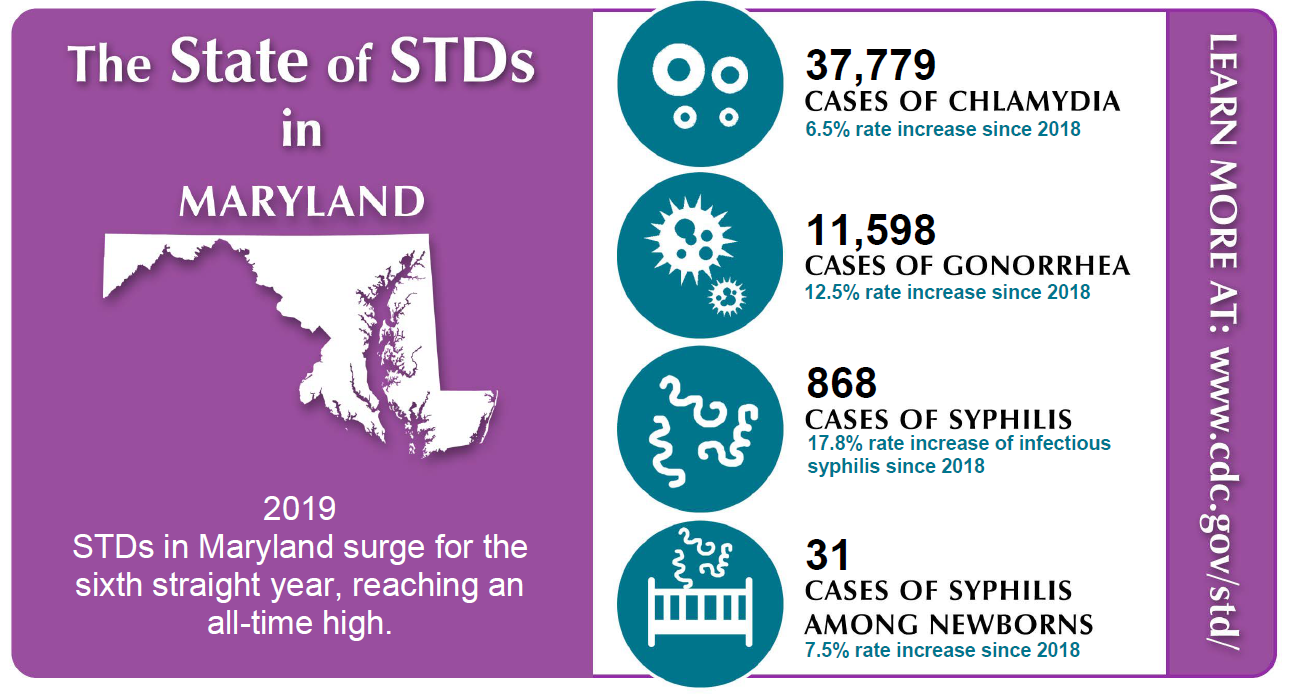Untreated STIs can cause serious, even life-long, health problems if they are not treated. These include pelvic pain, inability to get pregnant, pregnancy complications and certain cancers of the vagina, cervix, penis, anus or throat. STIs passed during pregnancy or child birth can be very serious, or fatal, to an unborn or a newborn baby.
STIs like chlamydia, gonorrhea, syphilis and trichomoniasis (trich) can be cured with antibiotic medications. Even if you have been cured, you can get the same STI again. There are also medications to manage or treat the symptoms of STIs that aren’t curable like herpes, HIV, and human papillomavirus (HPV). Treatment lowers the chances of passing infections to your partners.

Symptoms
Most people who have an STI don't have any symptoms. Click here to learn more about what symptoms may look and feel like.
The only way to know if you have an STI is to get tested. Visit our Testing & Treatment page for more information.
Protecting Yourself and Your Partners from STIs
You can prevent or lower your chances of getting an STI by doing the following:
-
Avoid having sex. Abstinence is the only sure way to prevent getting STIs.
-
Have fewer sex partners. By having fewer sex partners and talking to your partners about getting tested and treated, you can lower your chance of getting STIs.
-
Use condoms and dental dams. To lower the chance of getting an STI, male condoms, female condoms, or dental dams should be used every time you have sex and with every partner.
-
Get tested. By getting tested, you can get timely treatment if needed and protect your health. You can also encourage your partners to get tested to protect yourself and them.
-
Get vaccinated for certain STIs like HPV. Vaccines prevent and reduce your chances of getting cancer causing STIs like HPV.
Learn more about how these steps can help protect yourself and your partners from STIs.
STIs and HIV
If you have an STI, you are more likely to get HIV. The same behaviors (sex without a condom, multiple sex partners, or anonymous sex partners) that put you at risk for STIs put you at risk for HIV. Also, if you have an untreated STI which causes sores, HIV can more easily enter your body through those sores. If you already have HIV and then get another STI, it can put your HIV-negative partners at greater risk of getting HIV from you. Learn more about the relationship between STIs and HIV.
STIs, PrEP and PEP
Pre-exposure prophylaxis (PrEP) and post-exposure prophylaxis (PEP) are medications taken by people without HIV to protect against HIV. PrEP is a daily pill taken to prevent HIV. PEP is medication taken after possible HIV exposure to prevent infection.
PrEP and PEP do not protect against other STIs like syphilis, and they do not prevent pregnancy. If you are on PrEP or PEP, you should talk to your doctor about testing and treatment for other STIs like chlamydia, gonorrhea and syphilis. Learn more about PrEP and PEP or find a PrEP provider here.
STIs and Pregnancy
A pregnant woman can pass on STIs like chlamydia, gonorrhea and syphilis to her unborn or newborn baby if she doesn’t get treated. Chlamydia, gonorrhea and syphilis can cause serious health problems in infants. Syphilis can even cause death to an unborn or newborn infant. If there is a chance you could be pregnant, get tested and treated. Learn how to protect yourself and your baby from STIs.
Birth control does not protect against any STIs, including HIV. Learn more about the different types of birth control here.
Last updated: 7/20/2020

